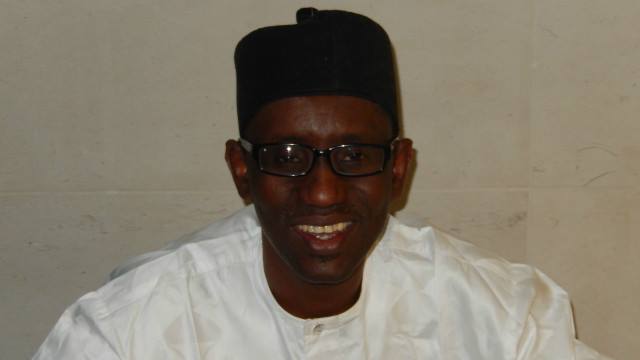Security & Crime
Ribadu asserts that resolving the national security issue is a shared responsibility

Malam Nuhu Ribadu, the national security adviser, asserts that it is everyone’s duty to work together to save the country from its security woes.
This was said by Ribadu on Monday in Abuja at the start of a two-day conference titled “Challenges and Innovations in Countering Terrorism and Violent Extremism: Strategic Approaches.”
The African Centre For Strategic Studies (ACSS) Alumni, Nigeria chapter, coordinated the symposium.
He expressed concern about how the nation’s current security threats have put its people through unspeakable hardships.
“Among many other violence-fueled disputes, there have been indigenous insurgency and terrorism in the Northeast, banditry and kidnapping in the Northwest, militancy in the South-South, and secessionist agitations in the Southeastern regions of the country.
We have all coming here today because it is “our collective responsibility to ensure that our country is rescued from this menace,” he stated.
He claimed that the Terrorism Prevention and Prohibition Act (TPPA) 2022 was passed as a result of the federal government’s response to the nation’s changing security dynamics.
The National Counter Terrorism Centre (NCTC) was founded under guidance from this act. The Centre is responsible for coordinating national counterterrorism policies, tactics, and plans, he said.
He claimed that experience around the globe had demonstrated that the hard approach or kinetic tactics alone were insufficient to combat terrorism and violent extremism (VE).
“A combination of kinetic and non-kinetic tactics is necessary to combat the threat.
“Action to Prevent Violent Extremism was launched by the UN in 2015 under the leadership of former Secretary General Ban Ki Moon.
“In the Plan, the UN Secretary General asked for a comprehensive strategy that would include not just crucial security-based counterterrorism measures but also methodical preventive actions to address the underlying issues that lead people to become radicalised and join violent extremist organisations.
In order to accomplish this, Nigeria created the PF NAP for PCV in 2017, he stated.
He claimed that the policy framework was a complementing, all-encompassing strategy for dealing with the challenges posed by violent extremist groups on both the government and social levels.
The framework aims to strengthen the legal system, increase coordination, increase capacity, and, by including strategic communication, offer VE alternative narratives.
In order to prevent and combat violent extremism and terrorism within our borders, it also provides all non-kinetic activities with guidance, direction, and—most importantly—coordination.
“The Whole-of-Society and Whole-of-Government approach to our non-kinetic operations require dedicated and concerted efforts by every citizen and governments at all levels,” he declared.
While praising each and every delegate for their unwavering dedication and sacrifice to attend the symposium, he urged them to view the occasion as a call to reawaken interagency cooperation, collaborative, and coordinated efforts that everyone must embrace.
“‘As a result, I beg you to use this incident as a call to revive the interagency collaboration, coordination, and cooperation efforts that we all need to embrace.
“We must make sure that issues like the unfavourable public impression of government policies, scarce resources, the erratic or disruptive actions of some international partners, and the insufficient ability of key stakeholders responsible for implementing PCVE are addressed.
The conflict will be resolved with the answers put forth at this symposium during the next two days, including the poor institutional and legal frameworks for some PCVE components in light of the complicated demographics of our region.
With the level of knowledge and experience the delegates here possess, he remarked, “I am completely confident that we will make good progress.”
In his remarks, Rear Admiral Makinde Olotu, the Commandant of the Nigerian Defence College (NDC), stated that the world was currently living in a time when terrorism and violent extremism had emerged as the main challenges to international peace and security.
According to him, violent extremism and terrorism are complex, multifaceted phenomena that cut over national, cultural, and religious barriers.
The government, civic society, business community, and academic community must work together to find multifaceted solutions to the serious problems they pose to peace, security, and human rights.
“The emergence of extreme ideologies and technological advancements have made it simpler for terrorists to carry out attacks and disseminate their message of hatred.
Nigeria continues to be one of the top ten nations in the world where terrorism has had the greatest impact. Therefore, any discussion of the problem is important to us all and timely, according to him.
He claimed that the difficulties in battling terrorism and violent extremism had not abated.
He claims that terrorists, for example, are evolving their methods more and more.
“They utilise unique strategies in their operations, such as the utilisation of cutting-edge technologies, and they look into social media and other online platforms to radicalise and enlist new members.
“Adopting innovations that would improve our ability to identify, prevent, and respond to terrorist threats has become crucial in light of the economic realities and geopolitical forces, particularly in developing countries.
“These innovations should be tailored towards addressing the ingrained roots and forces that fuel violent extremism and terrorism in our countries,” he said.
According to him, combating violent extremism and terrorism will necessitate interdisciplinary and cross-sectoral methods to provide complete and successful solutions, including counter narratives, conversation, and mediation as well as community resilience.
He expressed his confidence that the symposium will serve as a forum for insightful debates and the sharing of ideas on how to use innovations to combat violent extremism and terrorism.
Retired Commodore Abimbola Ayuba, President of the Nigeria Chapter of the ACSS, stated that the symposium’s purpose was to examine the current issues facing the sub-region, particularly in Sahelian West Africa.
He added that it was important to consider the security issues in the Lake Chad Basin, which has been the scene of several cross-border crimes in addition to terrorist attacks and banditry.
It is anticipated that its results would pave the way for future security and conflict resolution in our globe, he said.
